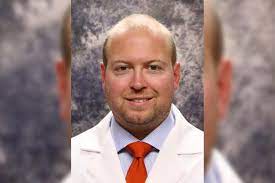
Revolutionizing Healthcare: How Doctors Like Dr. Philip Sobash Are Saving Lives Through Telemedicine
Doctors like Dr. Philip Sobash are using telemedicine to save lives and revolutionize the medical field. Telemedicine, the practice of providing medical care through telecommunications technologies, has become increasingly prevalent in recent years. Its potential to improve patient outcomes and increase access to healthcare is remarkable. If you aspire to become a doctor like Dr. Philip Sobash and be part of this transformative movement, it is essential to understand what telemedicine is and how it can benefit your patients.
Telemedicine enables doctors and patients to connect in real-time, regardless of physical distance. By leveraging video conferencing, remote monitoring, and other digital tools, healthcare providers can offer medical consultations, diagnoses, and even treatments without the need for in-person visits. This capability is particularly valuable for patients who face challenges in traveling to a clinic, such as those in rural or underserved areas.
One of the significant benefits of telemedicine is its potential to reduce pain and improve patient comfort. Through virtual visits, doctors can assess patients’ conditions, provide treatment recommendations, and even prescribe medications remotely. This not only saves patients the discomfort of traveling but also enables them to receive timely care without unnecessary delays. Telemedicine also offers the possibility of connecting patients with specialists in various fields, such as psychology or nursing, further enhancing the scope of care available.
Additionally, telemedicine plays a crucial role in disease prevention and management. Patients can access healthcare professionals remotely, allowing for early intervention and treatment. With telemedicine, doctors can monitor chronic conditions, provide guidance on self-care, and adjust medications as needed. This proactive approach can help prevent exacerbation of illnesses and reduce hospitalizations.
To use telemedicine effectively, it is crucial to understand its practical aspects. Healthcare professionals must become proficient in the technology and tools required for telemedicine consultations. They must also be skilled in conducting remote assessments, communicating effectively with patients through virtual platforms, and maintaining patient confidentiality and data security.
By embracing telemedicine, doctors can significantly improve the quality of life for their patients. This form of medical care enhances access to healthcare services, especially for individuals who face geographical or mobility constraints. Patients can receive specialized care without the need for extensive travel, thereby minimizing disruptions to their daily lives. Telemedicine also empowers patients to take control of their health by providing them with the tools and resources to actively participate in their own care.
Furthermore, telemedicine has the potential to save lives. By expediting the delivery of medical care and connecting patients with the appropriate specialists, critical conditions can be identified and treated promptly. Telemedicine enables healthcare professionals to reach patients in remote areas or during emergencies when immediate intervention is vital. This capability can significantly impact patient outcomes, particularly in situations where time is of the essence.
In conclusion, telemedicine is a transformative force in healthcare, and doctors like Dr. Philip Sobash are harnessing its power to save lives and improve patient care. This innovative approach enables medical professionals to provide timely and effective care through digital platforms, overcoming geographical barriers and enhancing access to specialized services. By embracing telemedicine, healthcare professionals can enhance the quality of life for their patients, prevent and manage diseases, and make a significant positive impact on their communities. Aspiring doctors should familiarize themselves with telemedicine and incorporate it into their practice to stay at the forefront of medical advancements and contribute to the betterment of healthcare delivery.
Proudly powered by WordPress. Theme by Infigo Software.